William Harrison Gray (1850-1914)
Borough Engineer and Inspector of Nuisances: a Corrupt Official in Victorian Tewkesbury
So far in this developing series we have investigated the lives of some M.P.s of Tewkesbury who were deemed to be corrupt. There is little to be said in defence of Humphrey Brown who served a prison sentence for his misdeeds; except that he did try to bring employment to Tewkesbury at a very economically depressed time.[2] I was much more sympathetic to Captain W. E. Price, M.P. from 1868-1880, who lost his seat, not through any personal criminality, but because of his over-zealous staff who broke newly imposed electoral rules. He had perhaps been too indolent in realising that the traditional practices of electoral bribery exercised by his father in Gloucester were no longer acceptable in a modern democracy when now skilled working class had won the secret ballot.[3] We can perhaps conclude that Brown and Price were caught out by being unfortunate enough to live in an era of rising standards. We must also remember that M.P.s received no salaries until 1911.
This, however, was not the situation for Borough officials who were salaried and able, in addition, to take on part-time employment. Yet William Harrison Gray suddenly absconded from Tewkesbury in 1898, having embezzled £3,800.[4] He succeeded in finding sanctuary in South Africa with his wife and one of his sons: he was never brought to justice for this crime. Neither did his son Bertram C. Gray seem unduly disadvantaged by association since he was a trusted Borough employee who played a significant part in the cultural life of the town, culminating in the 1931 Pageant in support of the new Rural Hospital. In unravelling the embezzlement of this official, I am deeply grateful to the transcription skills of Wendy Snarey who has made available all the documents for us to read and analyse.
It may well be that, in such cases, pride really does come before a fall since Janet Devereux recalled Gray’s leading role in creating the Victoria Pleasure Gardens for the Diamond Jubilee of Queen Victoria in 1897.[5] However, an earlier Bulletin also hinted at his nefarious deeds by that ironic sleuth of historical scandal, Brian Linnell: [6]
“William Harrison Gray was the cornerstone of local government in the last quarter of the nineteenth century. As an officer of the Borough Council, he gradually became almost indispensable. His various offices included Borough Surveyor, Collector of Rents and Rates for the Borough, the Town and the R.D.C., Inspector of Canal Boats and Fire Chief. He was also joint owner with George Watson of the local Music Hall and held other minor posts. He was married and had three sons, one of whom died in infancy;[7] Jack, who emigrated to South Africa, and Bertie, who features in this little tale.”
to Expand
Unfortunately Gray disappeared just before it became technically possible to provide photographs in local newspapers and so we do not know what he looked like. However, an editorial in the Tewkesbury Register recalled the “portly figure of the borough surveyor” who, with his “boys”, marked the pitches with white chalk.[8]
Census records tell us that he was born in 1850 the son of Henry Gray, a corn factor and seeds-man from Warwickshire, who moved to Tewkesbury before 1854 when he complained in a court case that “there many sacks [of corn] stolen throughout the country”.[9] Henry lived at 74 High Street until his death aged 60 in 1883, after which did his widow Charlotte who died aged 92 in 1915. In 1861, his mother-in-law, Hannah Ward, was living with them, perhaps in gratitude since she had brought some property into the marriage. This was to have been most beneficial to the sons of the disgraced Borough Surveyor since the rents from lands in Welford were to be kept in the family to the issue of Charlotte Gray. Eventually, despite bankruptcy, the two sons did benefit from this legacy after the death of their father in 1914.[10]
William Harrison Gray trained as a land surveyor and was appointed by the Council in 1871[11] although he carried out private practice as a land agent at the same time.[12] In 1875 he married Lucina Purnell, daughter of a Church Street baker,[13] who brought 49 and 64 High Street Tewkesbury with her to the marriage – they lived at 64 High Street whilst his career lasted in Tewkesbury.[14] His sons later made strenuous efforts to keep his mother’s property out of the hands of the receiver.[15]
The only insights into his professional character are rather unreliable since his jobs did inevitably bring him into conflict with those who chose not to abide by local by-laws. However, within a year of his appointment, “James Ward complains of cruelty by the collector of rates, Mr. Gray. Board of Health rejected his complaint.”[16] The first evidence we have of questions over his financial probity came in 1887 when “Mr. Browett questioned Mr. Gray over missing vouchers.” [17]
We probably have a hint of financial difficulty in 1893 when there was a proposal to increase his salary as Borough Surveyor, which had “stayed at £140 for 21 years.”[18] This was only worth about £7,247 in modern values but was, of course, much superior to that of most people. However, he was also paid for his other posts; for example in 1878 when the council was troubled with “dogs with symptoms of rabies”, as Inspector of Nuisances his salary was £20. This compares with the Medical Officer of Health who was paid £50.
to Expand
In 1886 the differential had been eroded when his salary alone was raised by 50% to £30 (£1,609).[19] There were, however, bonuses: during the Smallpox Epidemic of 1896 “an Award of 25 guineas made by Town Council to W H Gray in recognition of his work during epidemic.”[20] It was evidently insufficient as he disappeared two years later.
Always wary of Linnell’s delight in uncovering corruption, he does however recount history with some individuality:
“William Gray accumulated posts and responsibilities: Surveyor, Collector of Rates, Inspector of Canal Boats, Fire Chief, joint owner of the Music Hall, to name several. He failed to attend one meeting of the local Board of Health, tendering his resignation by letter, with immediate effect.
Councillor Walter Jackson was the first to recover his wits. With typical directness his first words were, ‘I proposed that the accounts of the Surveyor be examined forthwith’. Unimpeded by computers, the results were known within a few hours. There was a deficit of just over £4,000, a useful sum today, but in 1894 the total income of the Borough, the U.D.C, the R.D.C. and some of the Sheep Fair as well. Panic? Not since the Queen’s letter to Mayor Prior had there been such a stir.[21] This time it was of no avail. William, leaving his family to the care of twenty year-old Bertie, skipped it, destination unknown, but as he was last seen on the docks at Sharpness it was doubtless to ‘foreign parts’. Both Borough and the Grays survived …” [22]
The contemporary newspaper accounts corroborate Linnell’s version, speaking of his “desponding state of mind;” he had been “last seen in Sharpness” except that, at that stage, it was thought that the “accounts in order.”[23] However, within a week the press were referring to his “defalcations” and reported that he had been “dismissed in absence”.[24] But the horse had already bolted leaving behind debts of £3,800 (£217,000 today) so his nemesis was bankruptcy in his absence.[25]
So far so good for Linnell’s very readable account; how much do the seven bundles of documents, which Wendy remembers just accidentally discovering in the County Archive, add to our knowledge of the consequence of the Surveyor’s folly?

One must question his state of despair since, not only did Gray succeed in escaping to South Africa, but he was able to gather a part of his family around him. He evidently settled in the wine growing district of Paarl in Cape Province.[26] Because his wife cannot be found in the 1901 census or in UK death records, it is possible that she joined him there. His second son, Jack, certainly joined him and his heir, Bertie, was left to pick up the pieces – or to organise the Tewkesbury end of the operation, depending on how cynical is one’s view of subsequent developments. Gray senior was declared bankrupt on 23 March 1898 but, despite the need to repay his debts, the two sons managed to purchase for £5 (£286 today) their rights to 49 & 64 High Street. Perhaps Bertie’s feat was all the more praiseworthy since, although 49 High Street was brought to the marriage by his mother, they had borrowed money from Frederick Moore an unspecified amount which had been repaid by 1897.[27] Could this have been the cause of the missing £3,800?
Bertie was doing well in property dealing in Tewkesbury. Bertram Cecil Gray was born in c1876 and, although his parents lived a few hundred yards away, we find that in 1891 he was boarding at Mr. Priestlay’s Abbey House School, located in the modern car park of the Bell Hotel. By 1901 he was a “surveyor working on this own account” and was being cared for by his aunt, Mary Sophia (née Gray), wife of ironmonger Sam Handley at 23 Church Street. It was perhaps fortuitous for the boys’ long term financial security that Aunt Mary was 39 when she married and thus had no children to share their inheritance. By 1903 he was ‘superintendent of the cemetery’ whilst, by 1905, he had secured a new appointment as ‘Assistant Overseer of the Poor’.[28] Furthermore he married in 1906 Miss Dora Dyer, daughter of the manager of Dobell’s Wine Shop in the High Street. That same year, he bought at auction a ‘Cottage in Double Alley’ for £145 (£8,297).[29]
1909 was another good year for Bertie: he had been appointed ‘Principal Collector of taxes’ and, concerning a Town Council discussion of “an application by B C Gray (Assistant Overseer) for a salary increase”, the Editor actually praised the award of an increase of £10 p.a.![30] For his professional duties, he rented from the Council an Office in one of the Market Shops in Sun Street. By the time of the 1909 Land Tax Survey, the Handleys, via Aunt Mary, owned 49 High Street and the whole of Brays Court – whilst Bertie had accrued his own portfolio. He owned his own house at ‘Parkview’ on the Gloucester Road, which he had bought in 1908 for £300 (£15,000), 82 Church Street (1906 £145 – £8,300), the old family home at 64 High Street (worth £600 – £30,000). Strictly speaking he was not the owner until his felonious father’s death on 16 July 1914 but, in his father’s will of 1911, Bertie, “engineer and surveyor”, was made sole beneficiary of Gray’s property after the death of his wife, upon payment of a £200 (£9,810) mortgage on 49 High Street which was promptly forwarded to brother, John, in South Africa.31 William also left his gold watch and “The Capital and Counties Bank Shares” to son, John.
This brings us to the second surviving son, known as ‘Jack’. Born in 1880 and four years younger than Bertie, he may have been the Pte. Gray in the winning team of the Tewkesbury Volunteers in a ‘field firing competition’ and he may well have been the “Mr John Gray” who helped rescue, at “the Sandy, Mr Howard, grocer & non-swimmer”.[32]
to Expand
Wendy’s documents, however, do not reveal a very appealing personality. Nor did he seem to have found paradise in South Africa: “Very many thanks,” he wrote, “for the kindly thought which prompted you to send the m/o for £10. It certainly assisted me materially as I was fairly well cornered and it helped me to stave off matters a little.”[33] This was written 1914 shortly after the outbreak of War and his own father’s death. He continued: (Note, italics in all of these quotes are the author’s – used for emphasis).
“I believe I have the longer head having had a good bit more of the world's buffeting than even you can imagine. When the old chap's wood business got so tangled up and we were forced to go insolvent ….. As I stand now, as surety for Father, his creditors are in a position to collar my share! ……. But always remember that information of my being a participant in this legacy must not leak out to this country as I may have same peremptorily forced from me and sold through the Courts, whereas if Father's creditors know there is nothing to come they will give me time and in this manner I can pay from future earnings……… I would suggest to you that the income from 64 High Street should be devoted to the maintenance of Grandma…. neither you or [sic] I would rest if we thought that our parents were lying in a nameless grave. There will therefore be a suitable monument to buy and payment made that will ensure its proper upkeep and repair in my absence and for perpetuity. …. To earn it all will take time especially as we may experience very bad times here, more than anywhere as the aftermath of this unfortunate war. This I also leave in your hands knowing you will do your best to ease my load. One thing we can both be glad about and that is that it was I who came to this country as I know that you could not have stood the amount of trouble that I have had. It is a good job I have got a broad back…. With love to you both and Grandma from Marie and myself.”
At least he feared that the courts would try to claw back some of his ill-gotten inheritance and he does reveal that his father had failed in setting up a wood business and that he had acquired a wife, Marie.[34]
In 1914, writing on black bordered paper, Jack was worried that his Aunt would get too big a share of his grandmother’s property.
“I see that there is some prospect of realising a portion of the Bidford property and I trust that you will be successful so that with the help of the balance of Grandma's life policy there should be more than sufficient to clear encumbrances and leave something decent over. ….. How does the old lady's policy stand? …. The firm I am working for are beginning to feel the pinch caused by the war and it is likely to become worse and I am afraid that they will begin to cut down expenses. If I am not retrenched altogether I shall probably have to work for a reduced salary and that puts off the day of settlement further than ever. Should on the other hand I be thrown out of my billet I can see very hard times in front of me as every day sees more people out of work here and there are no jobs going. Then to start a business of one's own requires capital which I have not, nor is there the slightest hope of getting any. So you see that it may be years before I can end my exile should things turn out as badly as I anticipate. There may be very great difficulty in obtaining employment, as I am not the man I was a year or so ago as the worry I have been through has very nearly cooked my goose. Anyway I expect to know something about it by next mail day when I will advise you what is in the wind. You never say how you are getting on.... I can imagine however that yours must be an humdrum existence - making a decent living but seeing very little of life. Well I have seen lively times and a little of the world and as far as I can see there is likely to be lively times here very shortly. At present one sees nothing else but troops and realises full well that the Empire is at war. One thing I can tell you, were it not for the way in which I am fixed up I would be off to Europe to have another fight. One thing I have been in one decent scrap and have a wound to show for it so must be content. Have no more time today so will conclude with love to Grandma, Dora and yourself from us both..” [35] …my firm has decided to dissolve partnership and to liquidate during the course of the present month. This means that I shall be out of a billet at the end of the present month. Luckily the Government have proclaimed a moratorium here so that creditors in my Father's estate cannot worry me now for another month and by that time something may have turned up.” [36]

(Tewkesbury Register)
“One thing I have been in one decent scrap and have a wound to show for it so must be content”: had Jack served in the Boer War? The last we hear from Jack was in 1927 when he wanted Bertram Cecil to sell 64 High Street.[37] Bertie was then continuing his social ascent and was living at Northend House, next to the Black Bear.
In following Bertie’s subsequent career, we need to return to Linnell who seemed fascinated by him:
“Bertram Cecil Gray was a product of the old Abbey House School which merged with the Grammar School in 1899. He became an architect (I believe the red brick old Grammar School is an example of his work) and something of an antiquarian. A tall, spare man with a small moustache, he, too, set out for a career in local administration. Against the bitter opposition of Walter Jackson, now an alderman and county councillor, he became a minor official in local government. From Assistant Overseer of the Poor Laws he gradually accumulated the posts of Superintendent of the Cemetery, Surveyor, Collector of the Borough Rates and Rent Collector. It was in this last capacity that I came to know him.”[38]
Brian’s portrayal of his ‘curriculum vitae’ is correct except that he possibly underestimates his influence by the time of the 1931 Pageant, during which he was feted with a photograph in the Register and his making of a model of the Abbey also attracted praise.[39]
Brian’s other advantage over our generation of immigrant historians, is that he actually knew some of the characters who comprised Tewkesbury’s history. He knew Bertram C. Gray!
in Tewkesbury Personalities no 6
(Town Library)Click Image
to Expand
“Once weekly he would call, dressed in a sober light grey suit and wheeling one of the Sit-up-and-beg bicycles. Although he sported cycle clips he never rode the machine; it was used solely to carry two black bags, one on each handle, one for paper work, the other for cash. He was always polite, removing his soft grey Homberg before entering and asking for the rent in that falsetto voice which is in my ears to this day. Something of a scholar, he wrote monographs on local institutions, and the whole scenario for the Pageant of 1931, and I owe a life-long interest in philately to his encouragement. So far he had followed in the steps of his father, both artistically and administratively. Did he go the whole hog? Bertie died fifty years ago, so no-one will ever know ….”
Linnell was presumably alluding to another whiff of corruption but, that never having been suggested, there is a mystery about the disappearance of one of the town’s most important artifacts – the stocks which were used to shame malefactors. This was situated under the huge elm elm tree outside the cottages opposite the Black Bear Inn on the corner of Bredon Road. In his later years, Bertie lived at Northend House – right next door on the High Street to the Black Bear.[40]
“In the 1960s there was the start of a widespread interest in local history and the past in general. As part of this movement the local council had a spring-clean of its records, with amazing results. Documents dating from the sixteenth century surfaced amongst others, but, more relevant to this story, the public were invited to join classes to study various aspects. This involved a supervised free run of all the records which had previously been off limits to the public. It was fascinating, but the fact relevant to this tale is the ‘Docket Discovery’. At frequent points in the piles of documents there would appear a small docket on which was written “Removed by Mr. B. C. Gray.” What was removed? When? Where is it now? No satisfactory answers have ever been given. What purpose could Bertie have in removing these items? Your guess is as good as anyone’s.
Coincidence? The tip of something strange? Whatever the reasons, one thing may be said with confidence: Bertie Gray was a very clever man.” [41]
Finding evidence of wrong-doing if perhaps an enjoyable pass-time for a historian but I doubt if Tewkesbury was any worse or any better than any other contemporary English town. However, great efforts are made in modern political life to eliminate the possibility of corruption with ‘Declarations of Interest’, which are closely monitored by the independent ‘Quango’, the Standards Board. My feeling is that two issues arise. Firstly that rising moral standards left people like Edwin Price & Humphrey Brown stranded in traditional corrupt ways and secondly that, perhaps, public servants were not sufficiently well paid. They felt the need to live a life commensurate with their public position but, in order to finance this; they needed to continue working in private practice and may be report to embezzlement in desperation. Perhaps William Harrison Gray was simply living beyond his means. Gray did escape justice but life for the exiles in South Africa did not seem idyllic and free of fear of justice. Was Bertie’s life, by comparison, “a humdrum existence - making a decent living but seeing very little of life”? He certainly left his mark on the History of Tewkesbury and that is no ignoble feat.References
- These seven bundles of documents can be studied at the County Archives, ref D2079/IV/42 - date: 1898-1927: and can be viewed on the Woodard Database at the Town Library.
- See Tewkesbury Historical Society Bulletin No.13 (2004) p.16: John Dixon, ‘Humphrey Brown, M.P.’
- See THS Bulletin No.16 (2007) p.13: John Dixon, ‘Capt. W.E. Price – a Corrupt M.P.?’
- Worth about £220,000 today.
- See THS Bulletin No.16 (2007) p.25: Janet Devereux, ‘Land of Hope and Glory’.
- See THS Bulletin No.8 (1999) p.62: Brian Linnell, ‘Characters in a Town’.
- William Purnell Gray buried 3 JAN 1877 aged 14 days; ref: 2068. Actually, he lost two children; one Harold Gray was buried aged 7 yrs on 25 Oct. 1889; ref: 3377.
- Editorial, ‘Michaelmas Fair’; Tewkesbury Register 13/10/1888 p1/6-7.
- Tewkesbury Monthly Record, 17/03/1854.
- Woodard Database reference 5a: “Power of attorney: ……….” dated 29th September 1914 (29/09/1914) referring to “William Welch late of Welford …, Yeoman deceased by his Will dated the 30th day of June 1837…”. In addition Wendy Snarey reminds us that Stratford Record Office ref. DR 165/282 - date: 15 June 1849 has a disputed will referring to a number of properties owned by the family.
- Tewkesbury Register, 07/10/1871 p.1/5.
- “To Be Let Mythe Farm, occupied by I Nind; agent W H Gray”: Tewkesbury Register, 25/08/1883 p.1/5.
- 1861 Ref-RG9/1807 104? Church Street: John Purnell; Head; Married; Male; 53; Grocer And Baker; Born Uley Glos.; Susannah Purnell; Wife; Married; 53; Housewife; Born Chesterfield, Ellen Purnell; Daughter; Single; 18; Governess; Lucina Purnell; Daughter; 17; Scholar; Born Tewkesbury.
- Wendy Snarey points out that No.64 seemed always to have housed a Surveyor – Richard Tree 1841, 1851; William Moore 1861, 1871, William Gray 1881 – and wonders if Gray purchased it from Moore and whether it where it contributed to the debt of 1898?
- Conveyance of Mr. William Harrison Gray's contingent interest in certain shares and freehold premises: 30th August 1898.
- Tewkesbury Register, 03/08/1872 p.1/5.
- Local Board of Health: Tewkesbury Register, 08/10/1887 p.1/5-6. Alderman Browett was a Printer who employed 3 men at 8 High Street. He was also one of the petitioners who successfully unseated M.P. W.E. Price!
- Tewkesbury Register, 11/02/1893 p.1/6.
- Tewkesbury Register, 06/07/1878 p.1/5 (£880 today) + 08/05/1886 p.1/5 (£2,140 today).
- Tewkesbury Register, 26/9/1896 Supplement.
- In 1863 our local hero of Trafalgar had 3/6d deducted from his Parish Relief. Mayor Prior received a letter: it was addressed “To the Mayor for the time being of Our Loyal and Ancient Borough of Tewkesbury”, and contained a £5 note and a letter. Phrases in the letter struck the Mayor almost physically. “We have a deep interest in the welfare of our Sailors”… “You will therefore deliver this £5 to Our William Sandilands and you will keep us informed. ….”. The thick, black signature was “Victoria R”. Tewkesbury Gossip, (1978, Theot Press) p.29. For the full history of William Sandilands see Sam Eedle, Tewkesbury Historical Society Bulletins 14 (2005) & 15 (2006).
- Brian Linnell, Tewkesbury Gossip (1978, Theot Press) by kind permission of the late author; transcribed by Joan Smith; p.58. The quotation also appears in T.H.S. Bulletin 8 (1999) p62.
- Tewkesbury Register, 26/02/1898 p.1/6
- Tewkesbury Register, 05/03/1898 p.1/5-6
- Tewkesbury Register, 02/04/1898 + 09/04/1898 p.1/6 + 16/04/1898 p.1/6
- Jack lived at 40 Queens Road, Walmer estate, Woodstock, Cape Province.
- 2a. Schedule of deeds relating to property and shares vested in Trustees on the marriage of “Mr. and Mrs. W.H. Gray” dated 10th day of October 1898; “Trustees Mr. Sam Handley and Mr. B.C. Gray.”
- Burial Board, reported in the Tewkesbury Register, 16/05/1903, p.1/7 + 21/01/1905 p.1/4.
- Tewkesbury Register, 02/06/1906 + 09/06/1906 p.4/1 + 4/6.
- Town Council: Tewkesbury Register, 26/06/1909 p.5/1,2,3,4 + 13/03/1909 4/7.
- “This is the Last Will and Testament of me William Harrison Gray of Paarl Cape Colony, Civil Engineer, 29th January 1911.”
- Tewkesbury Register, 07/12/1895 p.1/6 + 11/07/1896 p.1/6.
- Registered letter handwritten on black bordered paper addressed to “B.C. Gray, Esq., Church Street”, 10 September 1914 , PC Box 1352, Capetown, 10 Sept 1914. An ‘m/o’ is a money order. (Author’s emphasis in italics.)
- Using FREEBMD, there is no evidence of a marriage in England.
- Black bordered typed letter 30 September 1914.
- Black bordered handwritten letter 1 October 1914; 40 Queens Road, Woodstock. (Author’s emphasis in italics.)
- The Last Will and Testament of William Harrison Gray of Paarl, Cape Colony, Civil Engineer: the note from Jack, was written at Northend House, Tewkesbury on 9 February 1927, and folded with the Will of 30January 1911.
- Linnell, Gossip, p58. Linnell clearly did not like Walter Jackson, who had, nevertheless, exposed Gray’s father and whose name is inscribed upon the Grammar School’s foundation stone.
- Tewkesbury Register, 03/01/1931, p.1/6-7.
- Some local people recall seeing the stocks on the cobbles outside the window of the Town Museum at 64 Barton Street. Northend House has now been incorporated into the Black Bear but the landlord says the cellar has been filled in. We must find out where these stocks are hidden!
- see Linnell, THS Bulletin No. 8 (1999) p62
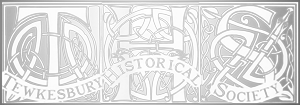
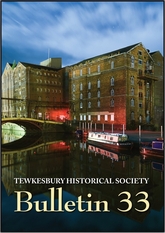
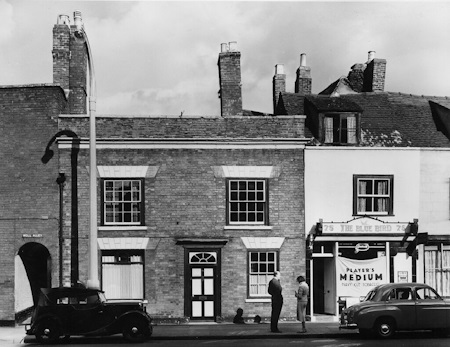
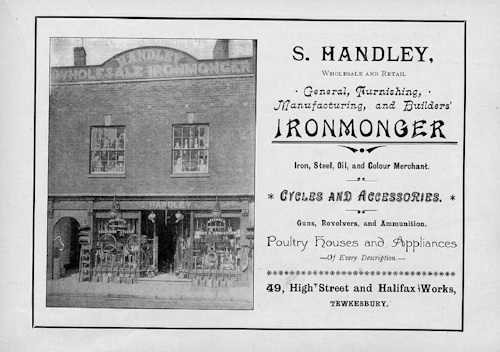
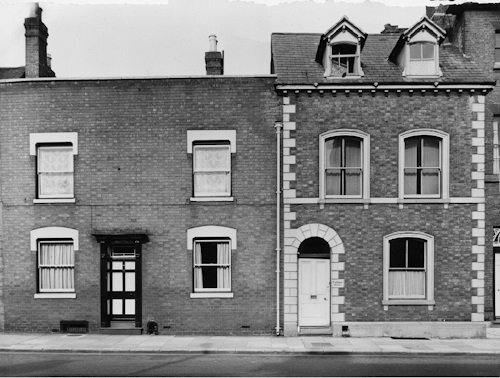
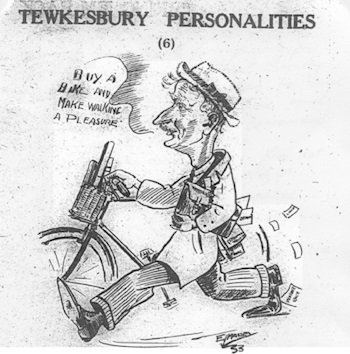
Comments